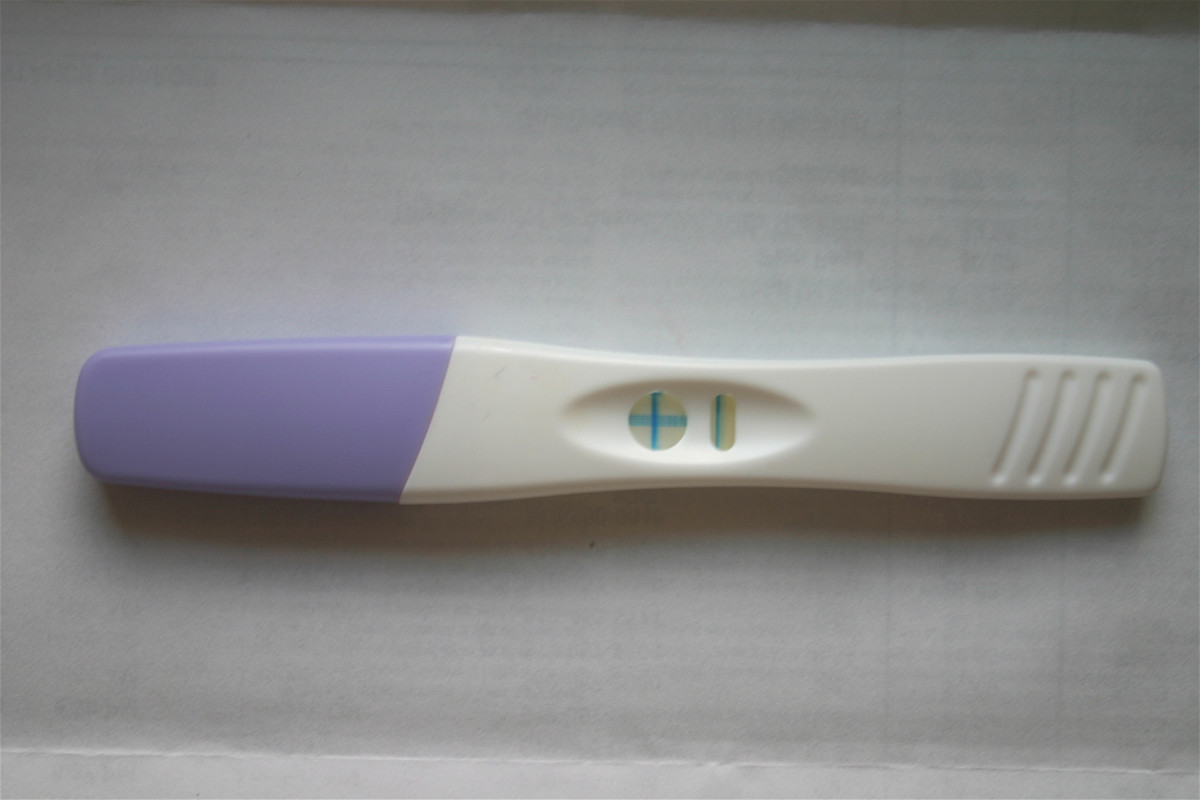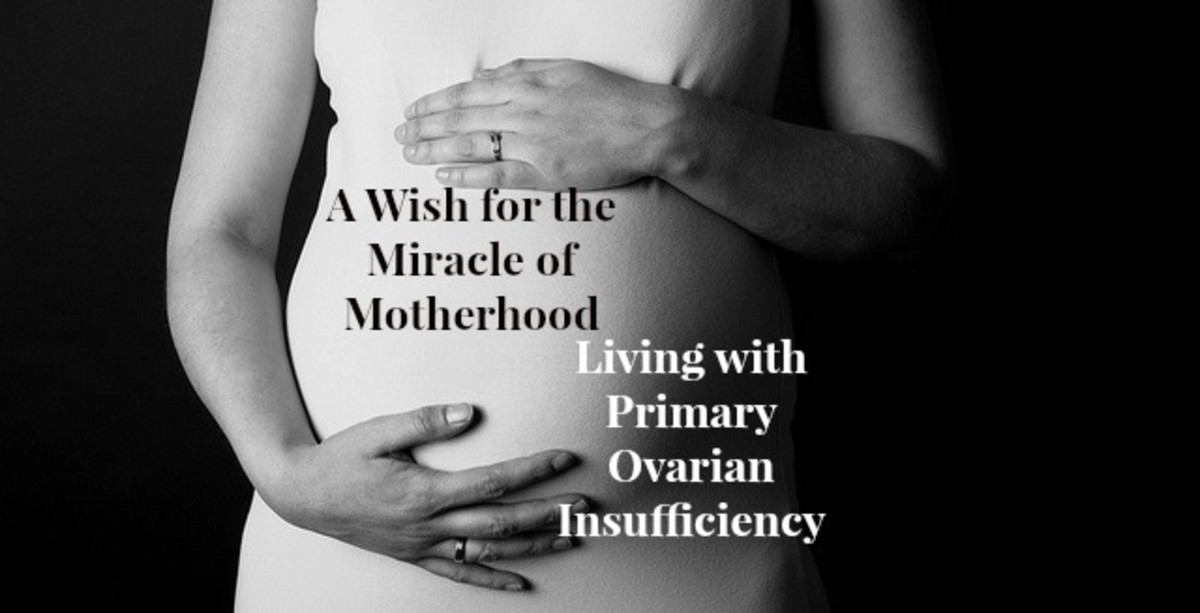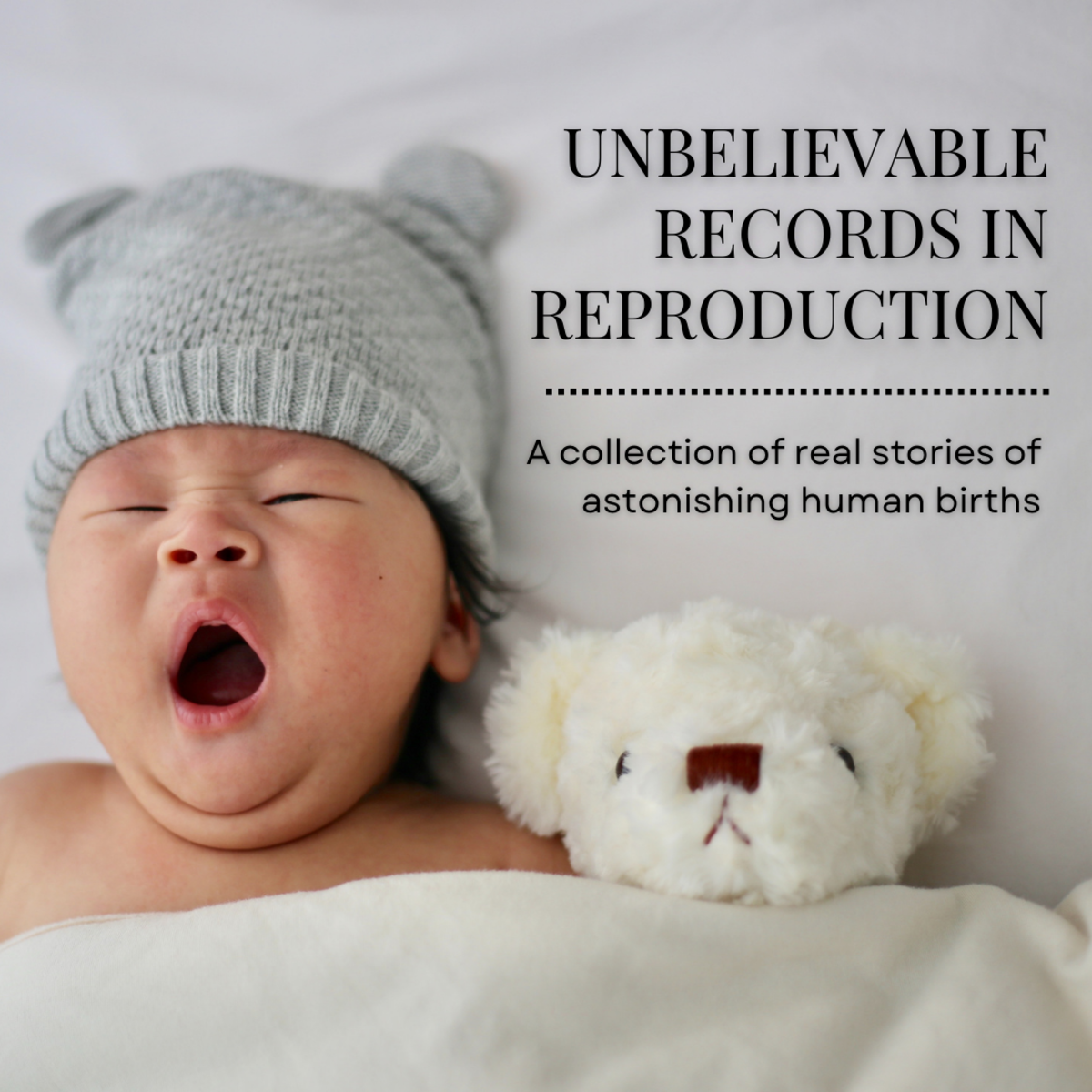Foods That May Keep You From Getting Pregnant
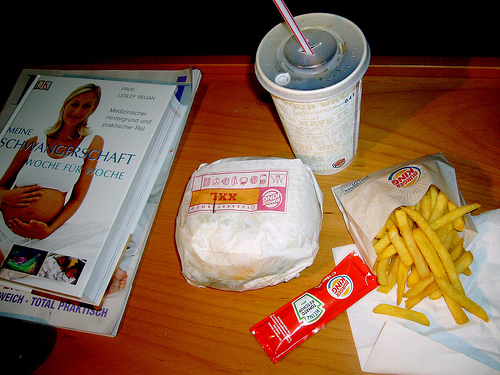
So everyone (in TTC circles) talks about all of the super foods able to help you get pregnant. No doubt you’ve read an article or five on the topic if you’re trying to conceive, but what about the foods you should be staying away from?
You’re right! Nobody talks about what foods you should stay away from. However, I would think this is just as important a topic to address, if not more important.
If you were eating foods that were harming your chances of conceiving, keeping you from ovulating, or even causing you to miscarry, would you want to know about it! Sure you would!
Chances are you haven’t given much thought as to what not to eat. Well, in this article, I wanted to bring some of these to light to help other women that are trying to get pregnant and are struggling.
You never know, you have been eating something regularly that may be keeping you from doing what you’ve been working so hard towards in your relationship. You deserve the best chance at a family.
Hopefully some of these tips will help you to make that happen!
Quick Poll
What is going to be the hardest food to give up in order to get pregnant?
Foods That May Be Harming Your Chances of Conceiving
When I say “may be harming” I mean that some of these could be disrupting the normal state of your hormones, keeping you from naturally ovulating, could be preventing healthy eggs from being produced, could be reducing your healthy (fertile) cervical fluid to the point that they are not conducive to carrying sperm or could even be killing them, could be preventing you from being able to implant eggs, and so many more reasons.
It’s not surprising that what you put into your body could have such an effect on the normal, natural processes of your body. With all of the chemicals and preservatives in our foods today, it’s no wonder we even live as long as we do. So what exactly is it that’s hurting you?
Alcohol
This one should be obvious. If something is bad for you and your body, it’s going to be bad for an infant, especially one just developing. Products like alcohol, cigarettes and drugs don’t just hurt your liver and your lungs, they can also destroy the parts of you that ovulate, conceive, and make a baby.
Although it is not required to completely give up your occasional cocktail in order to conceive, it has been scientifically proven that alcohol intake has a significant effect on infertility success, especially among women above the age of 30.
Some research shows that even a moderate level of alcohol can increase the chance of a miscarriage. In fact, women who drink even one alcoholic beverage per day are more likely to be annovulatory and not ovulate at all.
When trying to start a family, why would you want to take that chance?
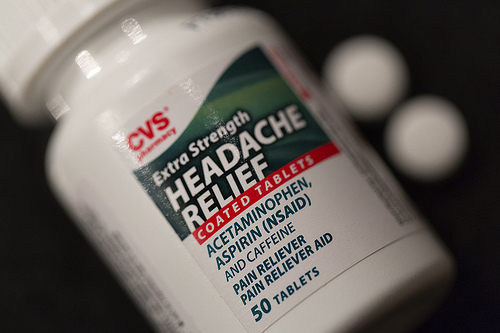
Caffeine
You wouldn’t think so, but caffeine may have the same effect on your body as alcohol. Many studies suggest that caffeine prevents your eggs from properly maturing.
Since immature eggs aren’t likely to fertilize, even with normal healthy sperm, it may seriously affect your chances of getting pregnant.
Unfortunately, this doesn’t just mean cutting back on soda and coffee, because caffeine is found in many other places as well. Consider iced tea, hot tea, energy drinks, chocolate, and even coffee-flavored ice cream.
Caffeine also shows up in herbal products and over-the-counter drugs, including some headache, cold, and allergy remedies.
Although you shouldn’t be taking any medications at all during this time if you are interested in getting pregnant, read any medication labels carefully if you absolutely need to take something.
Know ahead of time that most migraine medications specifically include caffeine.
Swordfish, Tilefish, Shark, or King Mackerel Fish
All fish are vulnerable to something called mercury in the water. This is a naturally occurring substance in water and fish accumulate it through breathing and eating.
However, it’s the bigger, more oily fish that accumulate more mercury than any other, mainly because they are eating smaller fish also containing this mercury.
If you are eating any of these fish, the mercury they contain can accumulate and linger in your body long after you consume it.
High levels of mercury can be harmful to you and can damage your potential baby’s developing brain and nervous system, even in the first few critical months before you even know you’re pregnant.
According to the Environmental Protection Agency (EPA), cognitive skills (like memory and attention), language, motor skills, and vision may be affected the most severely. (BabyCenter)
Make sure to stick to fish like flounder, haddock, trout, salmon, and shrimp when trying to conceive in order to keep yourself, and your possible pregnancy, safe. Or print out the Safe Fish Wallet Card (http://fn.cfs.purdue.edu/fish4health/Walletcard/PrintableWalletCard.pdf) to know what fish are safe for you to eat and which are not when trying to conceive.
Dangerous
| Healthy
|
|---|---|
Alcohol
| Non-Alcoholic Beverages
|
Caffeine: tea, coffee, soda, chocolate, energy drinks, medications
| Decaffeinated Products
|
Mercury: Swordfish, Tilefish, Shark, or King Mackerel Fish
| Catfish, Shrimp, Salmon, Cod Fish, etc.
|
Processed Foods: hot dogs, chips, tv dinners, mac and cheese, canned foods, cake and gravy mixes
| Fresh Foods and Homemade Meals
|
Unpasteurized dairy products: raw milk, yogurt, cheese, etc.
| Pasteurized Dairy Products
|
Raw or Undercooked Meat, Eggs, and Fish
| Thoroughly cooked meats, eggs, and fish
|
Artificial and Refined Sweeteners: Sweet N Low, Splenda, Equal
| Natural Sweeteners in Moderation
|
Soy Products: soy milk, soy nuts, tofu, edamame, etc.
| Avoiding Soy
|
BPA: chemical in plastic, aluminum and styrofoam containers
| Glass or Metal Containers
|
Processed Foods
The definition of what constitutes a processed food can vary slightly, but it usually refers to foods that are packaged in boxes, cans, or bags.
Processed foods contain sugars that our bodies do not need, and also a ton of toxins that can wreak havoc on both male and female fertility.
Some examples of these types of food are ready-to-eat foods like hot dogs, snack cakes, and chips, frozen foods like TV dinners, shelf-stable products like cans, macaroni and cheese, and Hamburger Helper, and prepared mixes like gravies, brownies, and cake mixes.
This also includes anything that’s trying to pretend to be something it’s not, like margarine (or vegan “butter”), processed cheese products, imitation crab meat, pancake “syrup,” and “lemonade” powder.
It’s an amazing feat, but even fast food places have also somehow managed to screw up the most innocent, wholesome-sounding real food meals like oatmeal, sandwiches, and salads. “Even the salads at McDonald’s are full of high-fructose corn syrup and thickeners made from corn.” (100daysofrealfood)
You’ve heard the saying about staying on the outside ring of the grocery store for the fresh and healthy foods. The saying is right. The majority of those foods sold on the inside aisles of the grocery store are what you would consider processed foods.
Unfortunately the foods that you would think are the healthiest (like vegetable oils, margarines, shortenings, low fat, low carb and low sodium foods), are actually the most processed, meaning chemicals and preservatives.
This goes for typical junk foods as well. Fast foods, fried foods, sugary foods or fatty foods, are all on the no-go list if you are trying to conceive.
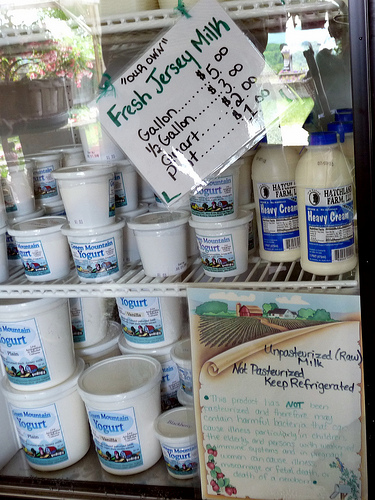
Low Fat or No Fat Dairy Products
You want to avoid “low-fat” and “no fat” dairy products. Conception is no time to be thinking about losing weight. Instead your focus should be on creating a healthy environment for a new baby.
Our bodies need the fat found in “full fat” dairy products to help ovulate and to stimulate healthy egg production. Fats also help you absorb vitamins A, D, and E, and they are vital for your nervous system. If you are currently stuck on a low fat or no fat diet, you may want to rethink that for a little while.
Unfortunately, in these seemingly "healthy" food options, the food industry simply replaces the animal fats in their products with un-saturated vegetable oils. To do this the food producers used a process called hydrogenation which created a solid or semi-solid fat thought to be more appropriate for their food processing needs. We now know these hydrogenated fats increase levels of dangerous trans-fats which are both bad for the heart and our cholesterol.
All of the extra chemicals and refined sugars in these products could be putting you at risk for other issues that may impair your fertility further.
Raw or Undercooked Eggs, Meats, or Fish
I think you already know that eating raw or undercooked meats, eggs, or fish could very easily put you at risk for salmonella, listeria, or other food-borne bacteria.
There have been many warnings from the Food and Drug Administration telling us this for years now.
These bacteria can put your body through the ringer, but more to the point, they can be extremely harmful to a developing fetus. In fact, according to the Centers for Disease Control and Prevention, pregnant women are 20 times more likely than other healthy adults to develop listeriosis. (NewsMomsNeed)
Even if you may like your eggs a little runny, like eating raw cookie dough or licking the bowl after making a cake, or even like your meat a little red, it’s just not safe when you’re trying to conceive.
Why take the risk that you could get pregnant and then seriously hurt your baby or even lose the pregnancy because you like to lick the spoon?
Consider postponing your risky food behaviors until after your baby is born healthy.
Artificial and Refined Sweeteners
The real danger is in artificial, or man-made, sweeteners like Sweet N Low, Splenda, and Equal, among many others. Just like other processed foods, artificial sweeteners contain chemicals and preservatives that are dangerous for a developing fetus and can do damage to your reproductive system.
There are a multitude of natural sugar alternatives like honey, agave, coconut sugar, and fresh fruit that you can use to sweeten your food safely without the worry.
In fact, too much refined sugar can lead to insulin resistance, which can cause or exacerbate polycystic ovary syndrome (or PCOS), which is a condition that affects ovulation and is one of the leading causes of female infertility.
It’s not that refined sweeteners themselves are the devil, but the quantity in which sweeteners are consumed these days that is honestly the scary part.
Sugar (or corn syrup or cane juice or brown rice syrup or whatever creative name is on the label) is no longer reserved for truly special occasions anymore, and instead is lurking in yogurts, breads, crackers, flavored oatmeal, beverages, and even innocent-looking salad dressings. (100daysofrealfood)
Rely instead on natural sweeteners like honey and maple syrup, since they are at least healthier for you and contain healthy nutrients. And in the end, try and cut back on your sugar intake altogether.
Put les sugar in your sweet tea, put honey in your hot tea, stay away from candy, and refrain from sprinkling sugar on your oatmeal and yogurt.
Try eating more fresh fruit pies (without the whipped cream), and go for more natural desserts. Even ice cream is better than chocolate when it comes to sweets.
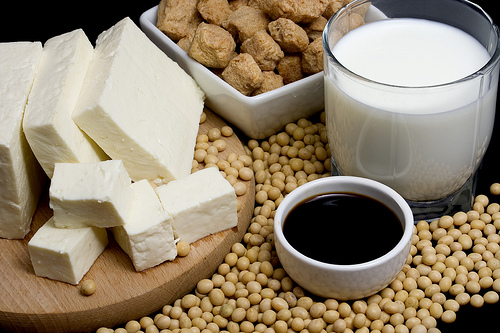
Soybeans and Soy Foods
I realize soy is the health food of the day, and has been put on a pedestal as a food that should replace so many others. Tofu, soy milk, soy nuts, edamame . . . Products containing soy protein appear in nearly every aisle of the supermarket.
Food companies also develop new food products containing soy protein from veggie burgers to fortified pastas and cereals. However, many studies have found that large quantities of soy protein can inhibit fertility.
If you like munching on a few edamame now and then, that’s OK, but if you are experiencing infertility problems, it may help to drop the soy milk, tofu, and tempeh from your diet. (JustMommies)
But could something that sounds so healthful actually be dangerous?
If you take the time to look into the actual science, then the answer is yes. Thousands of studies link soy to malnutrition, digestive distress, immune system breakdown, thyroid dysfunction, cognitive decline, reproductive disorders and infertility, even cancer and heart disease.
What is the reasoning for all of this? Well, more than 90% of soybeans grown in the United States are genetically modified.
Since the introduction of genetically engineered soybeans in 1996, we've had an upsurge in low birth weight babies, infertility, and other problems in the U.S., and animal studies have shown devastating effects from genetically engineered soy including allergies, sterility, birth defects, and offspring death rates up to five times higher than normal. (Huffington Post)
Isn’t this as good a reason as any to drop that addiction to soy and stay far, far away (especially for those trying to conceive)?
BPA
Really, something else? This is something you may not even be aware that you are consuming, and it could be hurting your chances of getting pregnant. So I thought it was important to discuss.
BPA, also known as bisphenol A, is a chemical found in plastic items, such as water bottles, food containers and even in the lining of aluminum cans.
Many studies have shown that high BPA exposure leads to the disruption of both men's and women's fertility, lowering sperm count in men and reducing the number of viable eggs in women.
There's no way to prevent BPA exposure altogether, as just about all of our foods are packaged in products containing BPA.
But you can limit your exposure by avoiding canned foods (The Bump), using metal or glass water bottles rather than the plastic ones, and restraining yourself from storing and reheating your food products in plastic or Styrofoam containers.
A new study suggests that the common chemical BPA can lower your chance of getting, and staying, pregnant, as BPA is a potent hormone-disrupting chemical with a long rap sheet of health problems, and one of the most suspected environmental causes of infertility. (HealthyLiving)
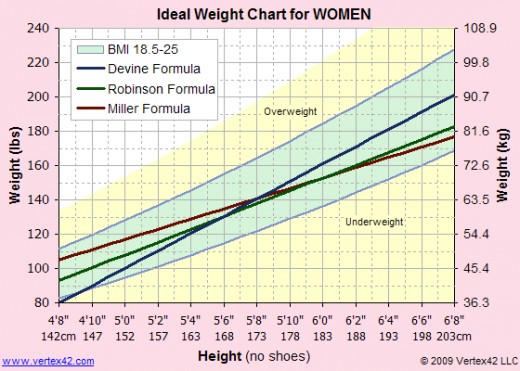
Last but not least, it may not necessarily be what you eat or don’t eat but how much of it you eat. If you are under or overweight when trying to conceive, your body may not even be capable of ovulating.
Even if you are, the likelihood that you will become pregnant will go down dramatically. Too much or too little of the necessary fat stores in your body will disrupt your estrogen levels. (JustMommies)
Your body depends on regular hormone levels to keep your cycle regular. Without a regular cycle, your body will not release eggs, produce the fertile cervical fluid necessary to carry sperm to the egg, or be capable of implanting a fertilized egg, much less providing for and carrying a baby to term.
So make sure you are maintaining a healthy diet and weight for your body. You can do this by eating tons of great fresh fruits and vegetables, keeping a balanced diet, and staying away from potentially dangerous foods to your fertility. (See the Height/Weight chart to the right to see where you fall.)
Check out my article on Great Foods to Eat When Trying to Conceive for some great ideas for foods to eat for optimum fertility.
When you are eating better, you will probably feel better too. That’s a side benefit that both you and your future baby will appreciate.
Quick Poll
How helpful was this article?
© 2014 Victoria Van Ness

